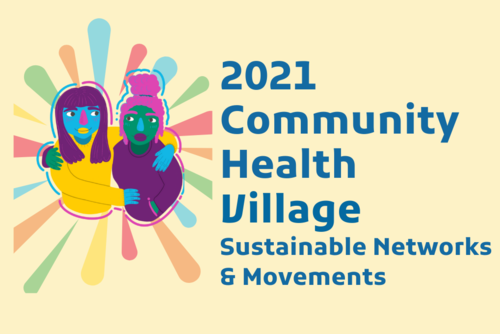Care is Resistance: From Being Detained as a "Terrorist" to the Coping-with-prison-guide

Care is Resistance: From Being Detained as a "Terrorist" to the Coping-with-prison-guide
- Who: Peter Steudtner
- Date: Thursday December 2, 2021
- Time: 8:00 - 9:30 am EDT / 13:00 - 14:30 UTC
- Duration: 90 minutes
- Type: Storytelling Workshop
- Language: English
- Location: TBD
Self- and community care is what carries political detainees, their families and communities through times of detention and arrest. Coming from the experience of the #Istanbul10, this workshop will combine storytelling with small exercises and options for experience exchange and mutual envisioning steps for self- and community resilience.
Bio: Peter Steudtner is a freelance trainer on Holistic Security and Nonviolent Conflict Transformation as well as a documentary photographer and filmmaker. His engagement in holistic security accompaniment is currently part of the Digital Defenders Partnership as a Psychosocial Support Facilitator as well as globally for other Human Rights Organisations and Programmes. He is one of the authors of https://holistic-security.org, https://protestos.org and https://coping-with-prison.org.
In 2017 Peter Steudtner was detained for four months together with 9 others on false terrorism charges in Turkey during a holistic security training for Turkish Human Rights Defenders. Although some of the so called #Istanbul10 were acquitted in mid-2020, including Peter Steudtner, four others received prison sentences with judicial processes still ongoing.
RSVP Here: https://digitalrights.formstack.com/forms/chv8
Notes
Background on Istanbul10: https://www.frontlinedefenders.org/en/organization/istanbul-10 https://freeistanbul10.info/en
Doğan Akhanlı and writings on solidarity https://dogan-akhanli.de/wordpress/?page_id=2174 https://www.dw.com/en/dogan-akhanli-writing-is-my-weapon/a-50194630
Solidarity as a "hammock" - crisis team's work had clear objectives that built many layers of advocacy - crisis team delegated tasks to ensure the well-being of the families of those detained, of those in detention, and to maintain the well-being of the crisis team itself - solidarity happens inside and outside of jail
Connection - the act of physical closeness or imagining physical closeness that can be powerful
Question: I've been part of a movement for more than 10 years. my comrades have been jailed or always at threat of being detained. how can the outside crisis team continue to operate if we're constantly going from threat to threat? There seems to be an empathy/compassion fatigue when we're trying to raise the world's attention to a detained comrade, especially during a pandemic. Answer: we need to acknowledge and create for other thoughts and spaces of sharing around other threats. even if we cannot free all the political prisoners, we must acknowledge our efforts. As someone from the inside prison: it was important to see/know that small results were made. We can work on other tasks that can help regain energy to the crisis team; we don't always have to be focus on freeing of prisoners. Care is resistance: taking care of each other to allow others to step back and step up as needed.
Q: Peter, did you realize that you were coping and helping those around you cope, or was it almost like a survival instinct?
A: As a trainer, first instinct was to care for others but that action lead to better care and helping others cope. Simple actions can show resistance. Example: I ran a lot while in detention, which inspired action on the outside.
Community notes
I really like this as a framing from Walter Wink’s Jesus and Nonviolence: A Third Way
- Seize the moral initiative.
- Find a creative alternative to violence.
- Assert your own humanity and dignity as a person.
- Meet force with ridicule or humor.
- Break the cycle of humiliation.
- Refuse to submit or to accept the inferior position.
- Expose the injustice of the system.
- Take control of the power dynamic.
- Shame the oppressor into repentance.
- Stand your ground.
- Force the Powers into decisions for which they are not prepared.
- Recognize your own power.
- Be willing to suffer rather than retaliate.
- Force the oppressor to see you in a new light.
- Deprive the oppressor of a situation where force is effective.
- Be willing to undergo the penalty of breaking unjust laws.
Resources
An excellent book for those who are helping others through trauma or for those who have encountered trauma "The Body Keeps the Score" https://www.penguinrandomhouse.com/books/313183/the-body-keeps-the-score-by-bessel-van-der-kolk-md/
Dr Bessel Van Der Kolk interview with NYT podcast (can listen without paywall) https://www.nytimes.com/2021/08/24/opinion/ezra-klein-podcast-van-der-kolk.html?
Art workshops in refugee camps https://www.borgenmagazine.com/joy-play-refugees-use-creativity-cope/ https://en.unesco.org/news/art-lab-talks-7-dancing-liberating-force-refugee-camps
Zeina Daccache is Lebanese Drama therapists that works with prisoners in Lebanon and has done such moving documentaries and film productions: https://www.imdb.com/name/nm3733101/?ref_=tt_ov_dr https://en.wikipedia.org/wiki/12_Angry_Lebanese:_The_Documentary
Don't Forget Us Here: Lost and Found at Guantanamo by Mansoor Adayfi https://www.goodreads.com/en/book/show/56221011
Center for Victims of Torture https://www.cvt.org/
---
"If you want to go fast, go alone, if you want to go far, go together" - African proverb